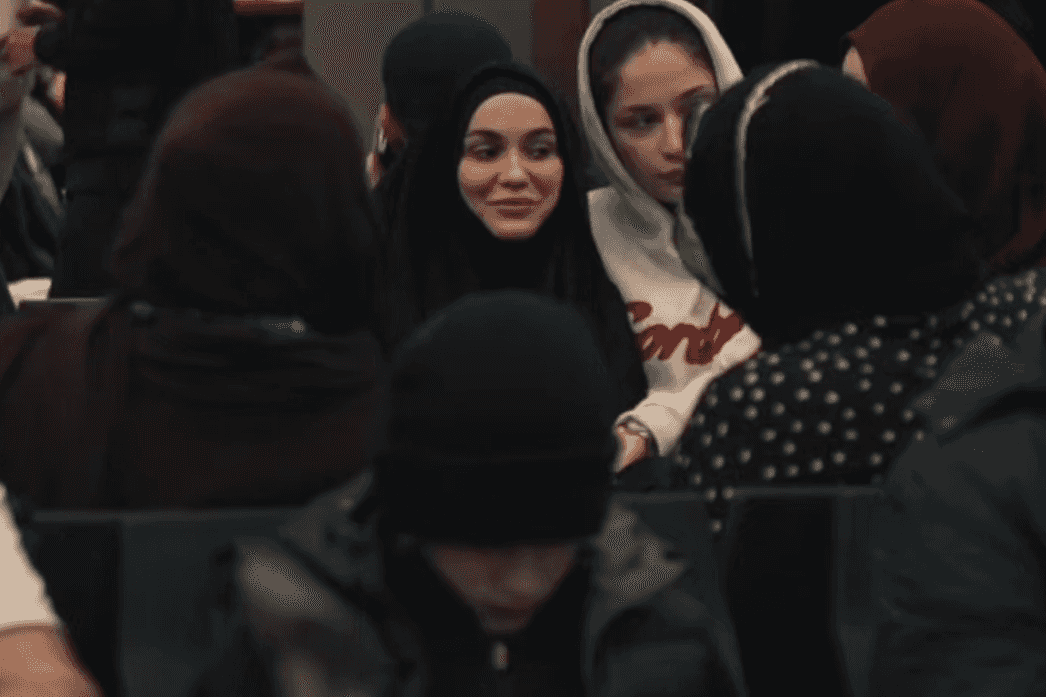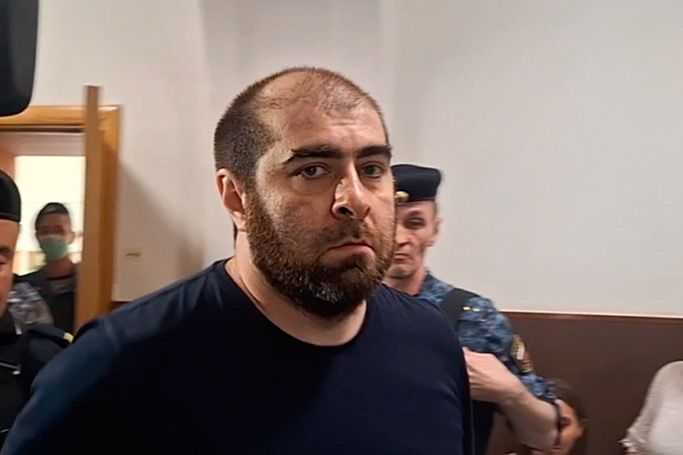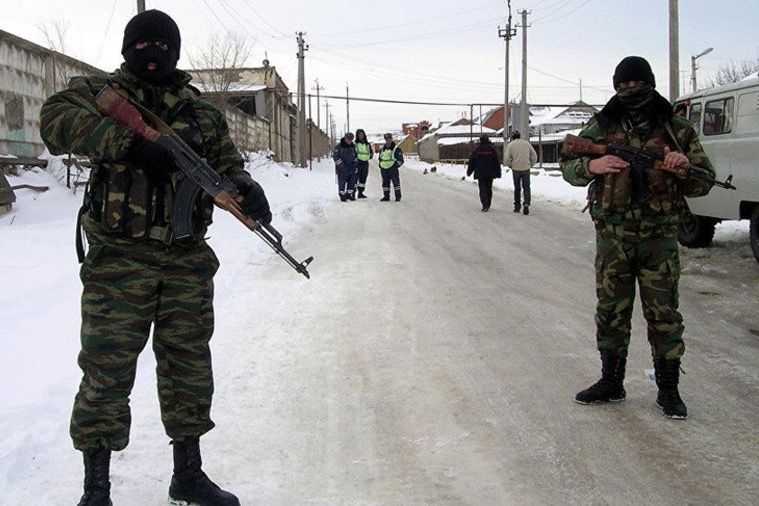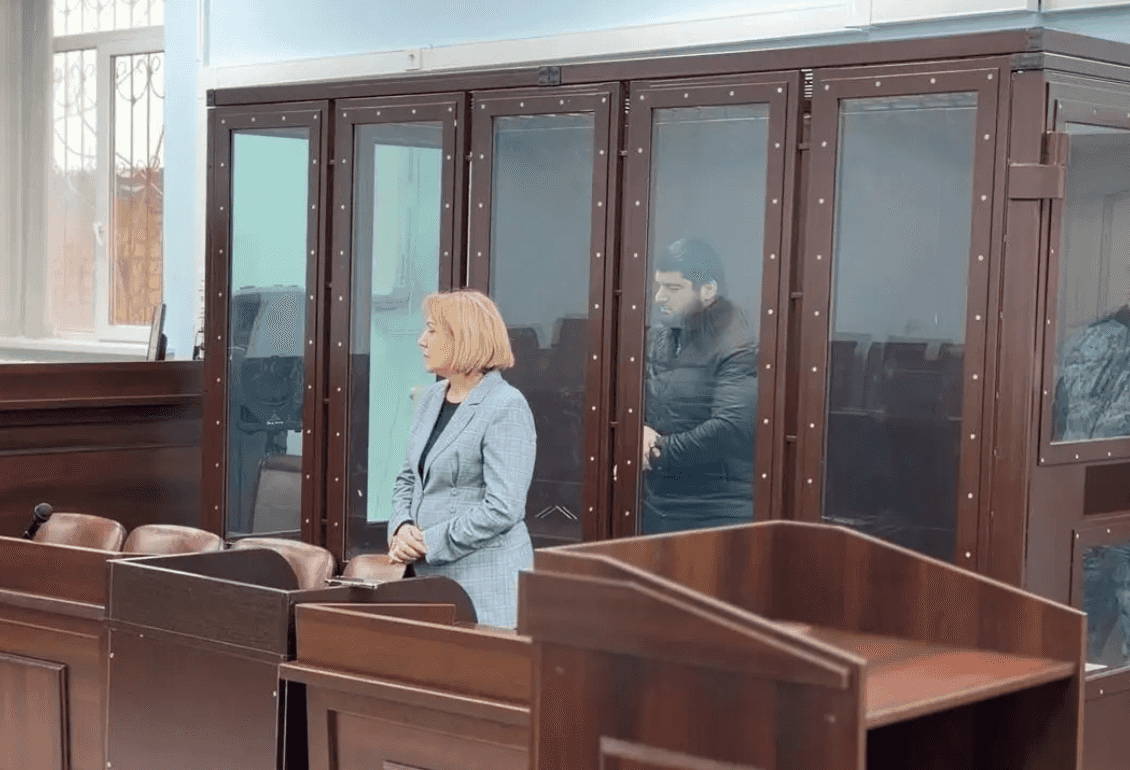
Svetlana Anokhina, a journalist, activist, and outspoken advocate for women’s rights from Daghestan, recently fled the Russian republic after being threatened with death. Labelled ‘the shame of Daghestan’ by her critics, Anokhina continues to confound them with her work from afar.
In July 2020 Svetlana Anokhina a women’s rights activist and journalist based in Daghestan, received a telephone death threat as part of a wider ‘sorting out the feminists’ campaign taking place in the republic. This was not the first threat issued to Svetlana but, unlike before, this time the caller tried to reach her by phone several times, making sure she received his message. And he took no effort to hide his own identity.
Svetlana tracked the phone number and established the name of its owner. She passed this information to the police. After the investigation had been completed, Svetlana hoped that justice would be fast. Yet, soon after the detective set a meeting with the caller, the local police abruptly stopped providing updates on her case.
Svetlana spent a month in suspense. However, once the situation started to get tenser, without any help from the authorities, she decided to flee Russia, at least for some time.
She later learnt that the police refused to initiate any proceedings against the perpetrator, as they did not see any grounds for it. No official statement explaining the refusal was ever sent to her.
Her perpetrator bragged about his family connections with the head of the local police. Svetlana believes this could have been the reason for her case not being investigated.
Having spent six months abroad, she is still upset that her large personal and professional connections proved useless in pushing this investigation further. ‘Do not get me started on the thousands of women who suffer from domestic violence and abuse and cannot count on the police for help’, she said to me.
‘Ugly and unappealing women’
Anokhina was born in Daghestan and spent most of her life in Makhachkala, its capital city. She is the editor-in-chief of Daptar, the only online media outlet in the North Caucasus that focuses on women and women’s rights. In 2020, along with other female activists, she founded Marem, a group offering legal and psychological assistance to women in difficult life situations.
It is no surprise that her offender wanted to ‘sort out the situation with the feminists’. In the interpretation of traditional and conservative representatives of the local community, the word ‘feminism’, does not resemble its western meaning.
‘In Daghestan, feminists are seen as ugly and unappealing women. They are said to be either lesbians or neglected by men’, Anokhina explains. ‘This makes them incredibly jealous of others. Consequently, they want to mess up the good life of men and deprive them of their natural rights.’
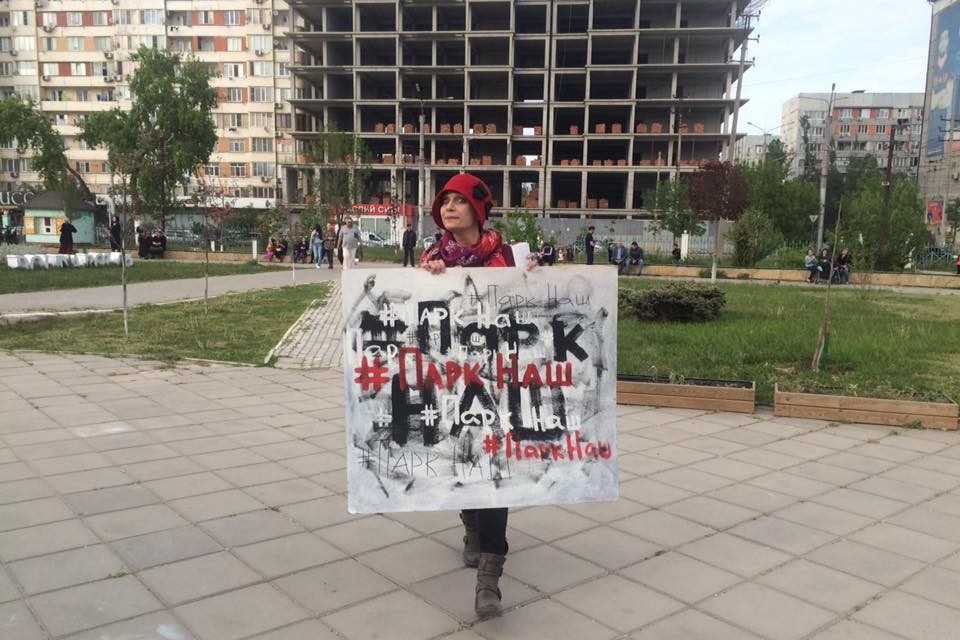
Women’s rights is one of the most controversial topics in Daghestan, which makes every activist and journalist working on the topic subject to threats and even violence.
Anokhina’s opponents are unhappy about two things. First, they believe that women do not want their rights to be protected, claiming that in Daghestan they are perfectly respected by their families and traditions.
Second, even in cases of family conflict and disputes, mediation by external organisations is regarded as unacceptable. It is said to be meddling in people’s private lives and is presented as a norm that is not accepted in Daghestan. These arguments are also used in more extreme situations such as domestic violence, abuse, and even killing.
Together with other activists, Anokhina fights for women to have control of their own bodies, and to receive adequate social assistance if necessary.
‘Is it still somebody else’s family if the whole street can hear a wife screaming and her child crying as the husband beats them up? In my opinion, that is a crime taking place there’, she exclaims. For such views, which Anokhina expresses openly, her opponents have labelled her ‘the shame of Daghestan’.
Silent despair
According to data from the OSCE, Russia ranked last of all the G20 countries in their 2019 women’s rights protection index. There are no official state statistics on cases of domestic violence and domestic sex-based abuse.
However, Human Rights Watch estimates that around 65% of victims in household conflicts, recorded in 2016 and 2017, were women; while in 2012, one in five women in Russia experienced domestic abuse from a partner or spouse.
In 2017 President Vladimir Putin signed a law decriminalising domestic violence, leading many women to lose hope. Based on this law, only repeat cases of family domestic violence are considered a crime. In most cases, punishment for battery is just a fine — and even this is the best-case scenario as Russian police are reluctant to pursue cases of domestic violence.
In December 2020, the Russian parliament approved a law meaning that making slanderous comments in the media or online are now punishable by up to five years in prison. This includes accusations of rape or domestic abuse. This has made discussion or reporting of such cases more difficult for victims, journalists, and activists.
Another issue, common throughout the country, is the tendency to cover up domestic abuse by patriarchal and traditional values. However, unlike the rest of Russia, where women can normally rely on the support of relatives and friends, the situation in the North Caucasus is more complex.
‘In Daghestan, you cannot run out of the house because this will dishonour your family and cause even more abuse and threats. Discussing domestic abuse in public or even within one’s family is not the way here’, Anokhina explains.
‘Most parents will not accept their daughter who escaped from her abusive husband. They will send her back, promising that her partner will change. But once she is home, everything repeats itself or causes even stronger persecution.’
Anokhina shares stories about those who managed to escape and those who faced further violence. All of them are shockingly similar because of the amount of violence that goes unpunished and the helplessness of women who has had no recourse. The only people who are there for them are women’s rights activists, who treat the women in a supportive way.
Marem’s story
In 2019, for the first time in its history, the European Court of Human Rights examined a case of domestic abuse. This was the case of Marem Alieva, a woman from the North Caucasus Republic of Ingushetia. Marem disappeared in 2015.
She was suffering from physical and psychological abuse from her husband when local human rights activists helped her leave him. However, after she was told that her husband had sworn on the Quran not to lay a hand on her again, she returned to him.
One day following her return, Marem saw a group of men gathering in her yard. She informed her sister. But by the time her sister reached her home, the only things she could find were a hair-dryer, some pieces of bloodstained hair, and a rope. There was no sign of Marem. She was never found.
The women rights group which Anokhina created in the summer of 2020 bears Marem’s name. The organisation aims to help women from Daghestan and other North Caucasus republics who face the threat of domestic violence or death. Marem helps them organise an evacuation, find temporary accommodation, and pay for taxis.
Marem volunteers receive dozens of calls daily. Women reach out when they are in a difficult situation and are searching for help with legal and psychological matters.
Many women do not ask for help, and are just looking for a person who would listen to them in a supportive way. Anokhina stresses that Marem volunteers never convince anybody to leave or stay home — the final decision is up to the women themselves.
‘We only provide assistance, but the choice is theirs. Metaphorically speaking, if they jump, we will help them not to fall’, she says.
Even women who ask Marem activists to organise an escape for them almost always hesitate and second guess their decision.
One of the girls who reached out to Anokhina was punched in the face by her father. The reason for the abuse was her complaint that her husband had been beating her. Her mother forbade her to divorce, claiming it would dishonour the family. One of her aunts had her teeth knocked out by her husband, but did not separate from him.
‘Many girls have changed their decision to leave home because of such examples in their families’, Anokhina explains.
Marem’s is a fully volunteer-based initiative. There are around a dozen activists involved — including those answering the phones, lawyers, and psychologists. The group has no office, while communication with women in need is managed in the simplest possible way — through direct messages on the group’s Instagram page or through WhatsApp.
The activists stopped counting the number of women they had helped once they reached the hundreds. There was only one day when the group did not receive any phone calls for help. This was on 6 July 2020.
‘What a happy day it was — no one was beaten or persecuted; no one had to escape from their home in a rush or fear being killed’, Anokhina says.
When financial assistance is needed, the organisation counts on donations from its supporters, or in most cases, from the volunteers’ own personal savings. One of the group’s founders, a Daghestani Instagram blogger named Mariam Alieva, used to direct the earnings she made on advertising through her blog to Marem.
In December 2020 this source of income was jeopardised. Alieva’s blog was blocked after she posted about a man who had allegedly been sexually abusing underage girls for years. Anokhina believes the real reason for her blocking could be Alieva’s human rights activities. There are many who are frustrated that such activism is conducted by a Muslim from the Caucasus.
Underestimated ban
The most extreme example of oppression and control present in Daghestan is female genital mutilation (FGM). Also known as female cutting, this practice was banned by the United Nations, which has recognised it as health-damaging and violating women’s rights.
However, the practice is still carried out on young Muslim girls living in the highlands and resettlement areas of Daghestan.
According to a 2018 survey by Russian NGO the Legal Initiative, over 1,000 girls in the republic undergo this procedure each year. There is evidence that some who resettled from Daghestan to Georgia also practice it.
In the view of its proponents, this procedure is good for a woman’s ‘moral health’. There is evidence to suggest that FGM reduces a woman’s sexual desire, which they see as a ‘guarantee’, that she will be a faithful, obedient wife.
Overall, the decision to perform the procedure is made by women. It is usually performed on girls between the age of 5 and 12. While for many this practice is inevitable due to its religious meaning and ritualistic character, there are also some who believe it should be voluntary. Human rights activists distinguish five types of mutilation, starting with the puncturing of the clitoris to the complete disposal of its tip. In August 2020, the muftiate of Daghestan made the unprecedented decision to ban the practice of completely removing the clitoris.
This decision was preceded by a four-year public outcry by journalists and human rights activists.
In August 2016, Anokhina published the first-ever article in Russia on the issue of female cutting in Daghestan. She was assisted by two colleagues, one of whom managed to collect real-life stories of women who underwent the practice but preferred to stay anonymous. Two weeks later, Legal Initiative coincidently issued the first report of the problem in Russia. For many in Daghestan, it looked like an attack on their religious and cultural values, and the publication immediately drew public attention.
Unfortunately, the 2020 decision of the muftiate went largely unnoticed.
‘People in Russia thought this regulation does not make sense if it does not completely ban female cutting. But there is such a huge difference. It is like the difference between being decapitated or just getting an incision on your neck’, explains Anokhina.
While temporarily in exile, she runs Marem from her new remote location. From here she also works as editor-in-chief of Daptar, which is the only online media reporting on the situation of women in the North Caucasus. This publication has certainly troubled Anokhina’s enemies.
This is not surprising as it covers topics like female genital cutting, selective abortions, early marriages, honour murders, and an education ban for women.
Daptar also educates its readers by publishing pieces on Islamic feminism, empowering stories about women from the Caucasus, and folk culture. However, these articles often go unnoticed, mainly because of the criticism that women rights issues receive in the region.
Daptar does not receive any funding and its writers and contributors submit materials for free.
Anokhina believes that if she returns home, the threats against her will continue. ‘These are the circumstances in which we live. My friends in Moscow attend picket lines knowing that the police can pick them up and put them in jail or at least impose a large fine on them. They carry on because they know that the work needs to be done’.
This is an edited version of an article written by Anna Efimova. The original first appeared on New Eastern Europe, on 3 February 2021.


